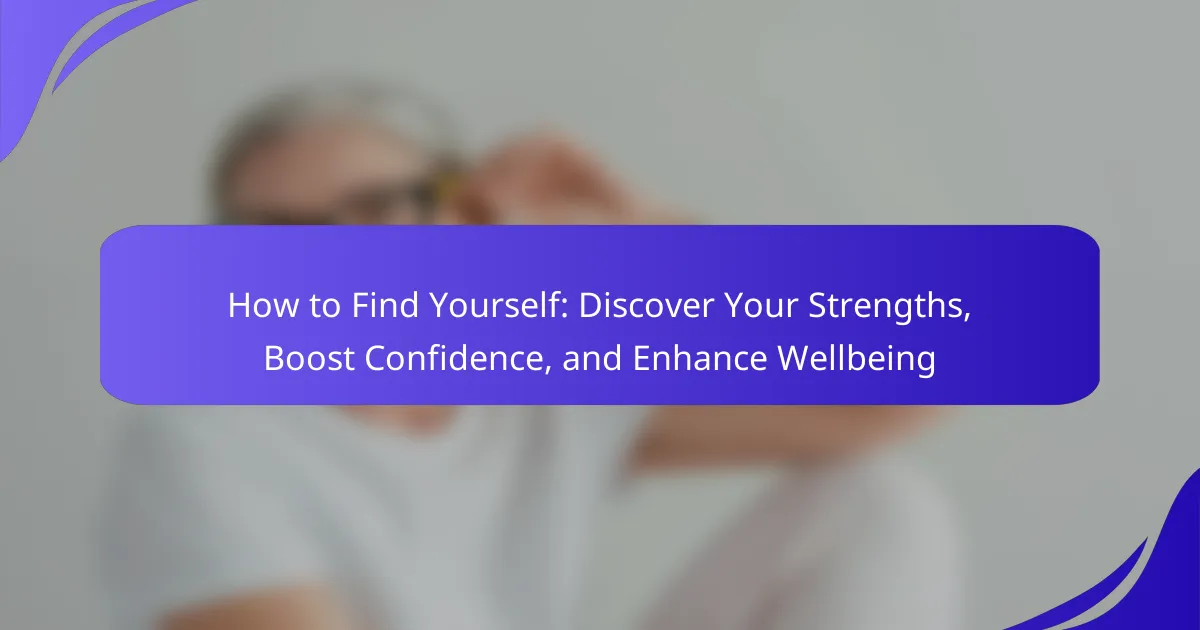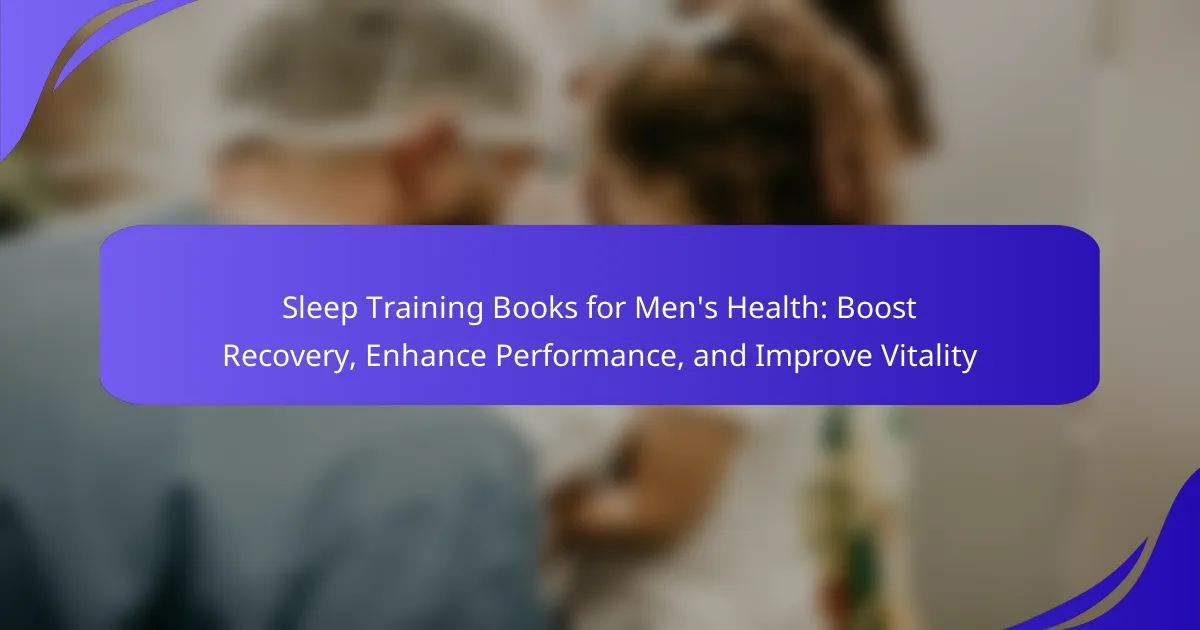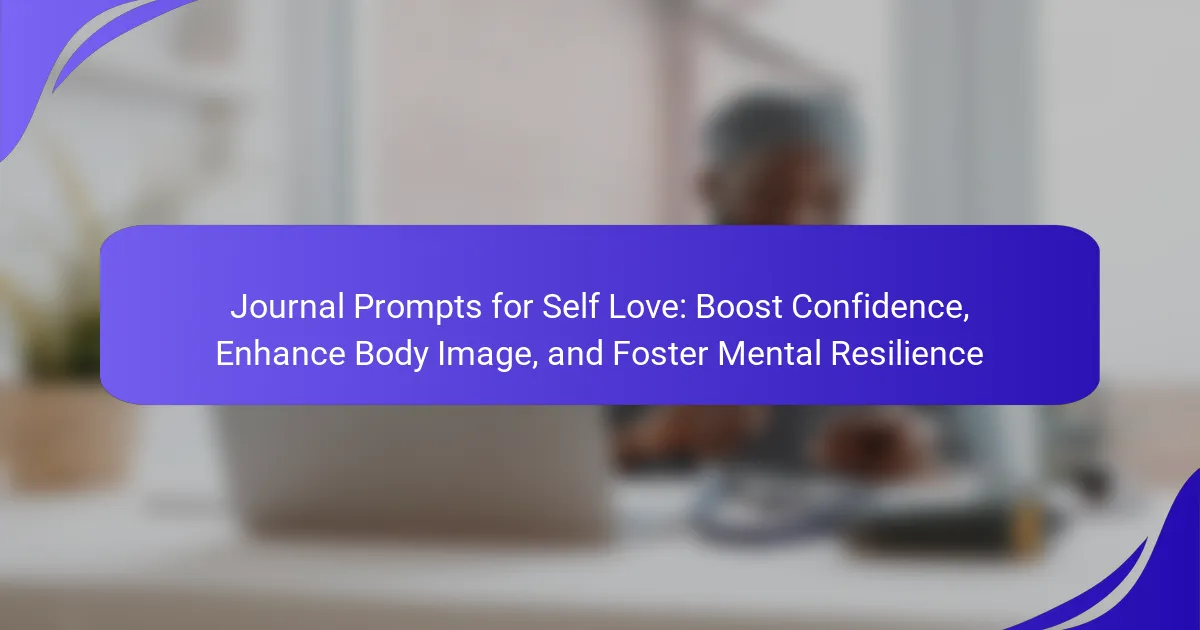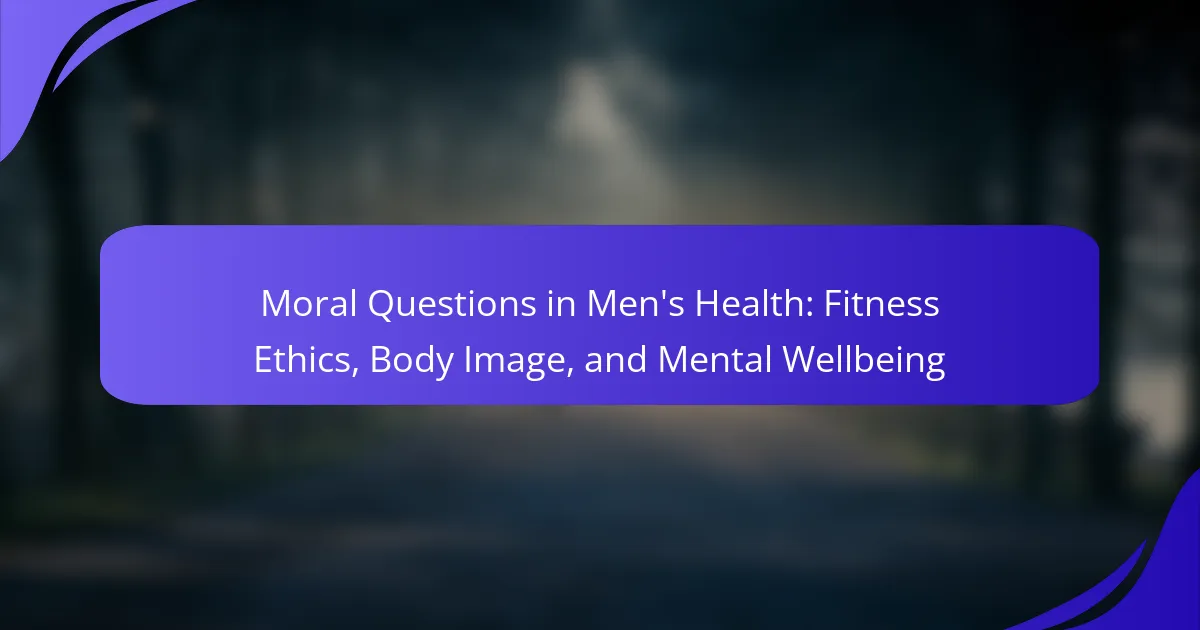Finding yourself is essential for understanding your true identity and purpose. This process involves self-reflection, discovering core strengths, and engaging in activities that promote personal growth. Boosting confidence enhances wellbeing and leads to better decision-making. Unique practices like journaling and meditation aid in self-discovery, while maintaining wellbeing requires self-awareness and healthy lifestyle choices.

What does it mean to find yourself?
Finding yourself means understanding your true identity, values, and purpose. It involves self-reflection, exploring interests, and recognizing strengths. Engaging in activities that promote personal growth boosts confidence and enhances overall wellbeing. This process often leads to a clearer sense of direction in life.
How does self-discovery impact mental health?
Self-discovery significantly enhances mental health by fostering self-awareness and emotional resilience. Engaging in self-reflection helps individuals identify strengths and weaknesses, leading to improved confidence and decision-making. Studies show that those who actively pursue self-discovery report lower levels of anxiety and depression. Additionally, understanding personal values and goals contributes to a greater sense of purpose, which is crucial for overall well-being.
What are the signs that you need to find yourself?
Feeling lost or disconnected often signals the need to find yourself. Signs include persistent dissatisfaction with life, lack of direction, and feeling unfulfilled in relationships or work. You may experience emotional numbness or a sense of identity crisis. Additionally, frequent self-doubt and comparison to others can indicate a need for self-discovery. Recognizing these signs is crucial for initiating a journey toward personal growth and enhanced wellbeing.

What are the core strengths to discover?
To discover your core strengths, focus on self-reflection, feedback from others, and exploring new experiences. Self-assessment tools can help identify unique attributes such as resilience, creativity, and adaptability. Engaging in activities that challenge you boosts confidence and enhances well-being. Embracing your strengths leads to personal growth and fulfillment.
How can physical fitness enhance your strengths?
Physical fitness enhances strengths by improving physical health, boosting mental resilience, and increasing self-confidence. Regular exercise promotes the release of endorphins, which elevate mood and reduce stress. This leads to greater mental clarity and focus, essential for personal growth. Additionally, physical fitness fosters discipline and perseverance, attributes that translate into other areas of life. Engaging in consistent workouts can also create a sense of achievement, reinforcing self-worth and motivation. Overall, integrating physical fitness into your routine amplifies strengths and contributes to overall wellbeing.
What role does nutrition play in building strength?
Nutrition plays a crucial role in building strength by providing essential nutrients that support muscle growth and recovery. A balanced diet rich in proteins, carbohydrates, and healthy fats enhances performance and promotes muscle repair. For example, protein intake directly influences muscle protein synthesis, which is vital for strength development. Additionally, micronutrients like vitamins and minerals support overall health, energy levels, and immune function, further contributing to strength gains. Prioritizing nutrient-dense foods ensures the body has the necessary resources to maximize strength training outcomes.
Which foods boost physical and mental performance?
Foods that boost physical and mental performance include complex carbohydrates, lean proteins, healthy fats, and hydration. Whole grains, nuts, fish, and fruits enhance energy levels and cognitive function.
Complex carbohydrates, like oats and quinoa, provide sustained energy. Lean proteins, such as chicken and legumes, support muscle repair and mental clarity. Healthy fats from avocados and olive oil improve brain health. Hydration, through water and herbal teas, is essential for overall performance.
Incorporating these foods into your diet can enhance strength, confidence, and overall wellbeing.
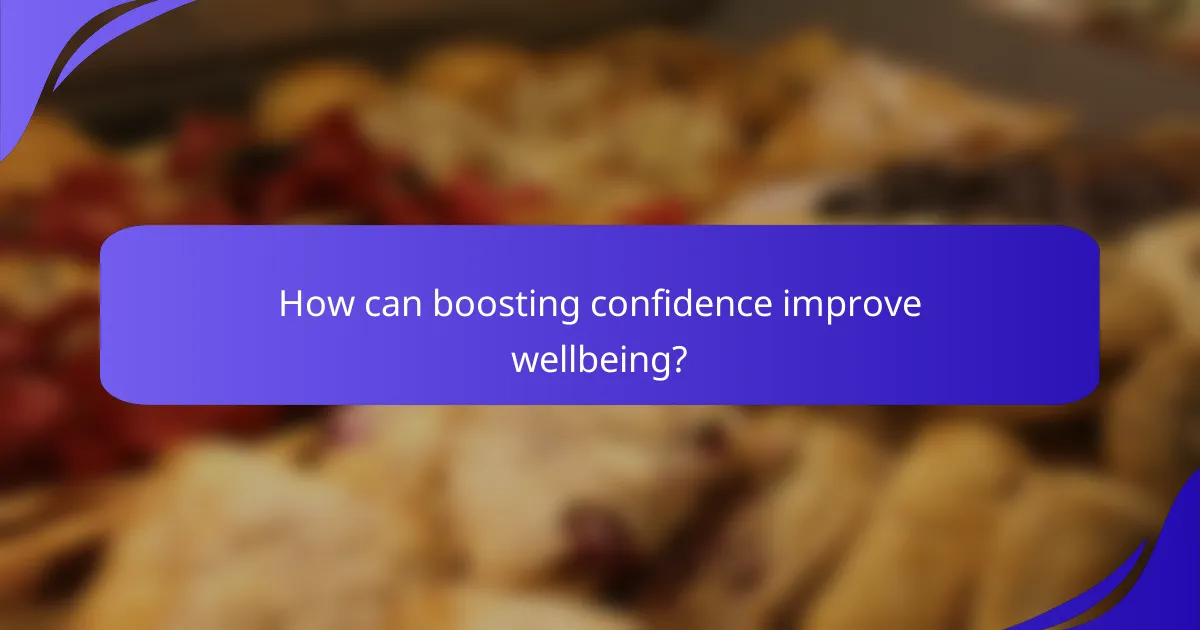
How can boosting confidence improve wellbeing?
Boosting confidence significantly enhances wellbeing by fostering a positive self-image and reducing anxiety. Higher confidence levels lead to better decision-making and increased resilience. Research shows that confident individuals often experience lower stress and improved mental health, contributing to overall life satisfaction.
What techniques can increase self-confidence?
To increase self-confidence, practice positive self-affirmations, set achievable goals, and engage in self-reflection. These techniques help reinforce a positive self-image and promote personal growth. Regularly stepping out of your comfort zone can also enhance confidence. As a result, you develop resilience and a stronger sense of self.
How does confidence affect social interactions?
Confidence significantly enhances social interactions by fostering openness and approachability. High confidence encourages individuals to engage more readily, express their thoughts clearly, and connect with others effectively. This positive self-perception leads to stronger relationships and improved communication skills. As a result, confident individuals typically experience greater social success and satisfaction.
What are practical ways to practice self-affirmation?
To practice self-affirmation, engage in daily positive self-talk, write affirmations, and visualize success. Regularly reflect on personal strengths and accomplishments to reinforce self-worth. Consider joining supportive communities that encourage positive reinforcement.

What unique practices help in self-discovery?
Engaging in unique practices such as journaling, meditation, and creative expression can significantly aid in self-discovery. These methods encourage reflection, enhance emotional awareness, and foster personal growth. Journaling allows for the exploration of thoughts and feelings, while meditation promotes mindfulness and clarity. Creative expression, through art or writing, unlocks deeper insights into one’s identity and values.
How can journaling aid in understanding yourself?
Journaling enhances self-understanding by facilitating reflection and emotional processing. It allows individuals to articulate thoughts and feelings, leading to greater self-awareness. Regular journaling can reveal patterns in behavior and thought processes, aiding in the identification of strengths and areas for growth. This practice fosters confidence and overall well-being by promoting clarity and reducing stress.
What role does meditation play in self-awareness?
Meditation significantly enhances self-awareness by fostering a deeper understanding of thoughts and emotions. It encourages mindfulness, allowing individuals to observe their mental patterns without judgment. As a result, practitioners often experience increased clarity regarding their strengths and weaknesses, contributing to personal growth. Regular meditation can lead to improved emotional regulation and resilience, which are essential for overall well-being. Research indicates that consistent meditation practice can enhance self-reflection and introspection, key components of self-awareness.

What are the rare attributes of self-discovery?
Self-discovery involves unique attributes that can significantly enhance personal growth. One rare attribute is the capacity for transformative experiences, which can lead to profound insights about one’s identity. Another is the ability to embrace vulnerability, fostering deeper connections with oneself and others. Additionally, rare attributes include the pursuit of authenticity, where individuals align their actions with their true values, and the development of self-compassion, which encourages a kinder internal dialogue. These attributes collectively contribute to a more fulfilling journey of self-exploration and personal development.
How can vulnerability lead to personal growth?
Vulnerability can lead to personal growth by fostering self-awareness and resilience. Embracing vulnerability allows individuals to confront fears and insecurities, which can enhance confidence and well-being. Studies show that people who express vulnerability often experience deeper connections and improved mental health. As a result, this openness can transform challenges into opportunities for personal development.
What uncommon methods can facilitate finding yourself?
Exploring uncommon methods can significantly aid in finding yourself. Engaging in practices like solo travel, immersive art experiences, or digital detox can provide fresh perspectives and insights. These activities challenge your routine, fostering self-discovery and personal growth.
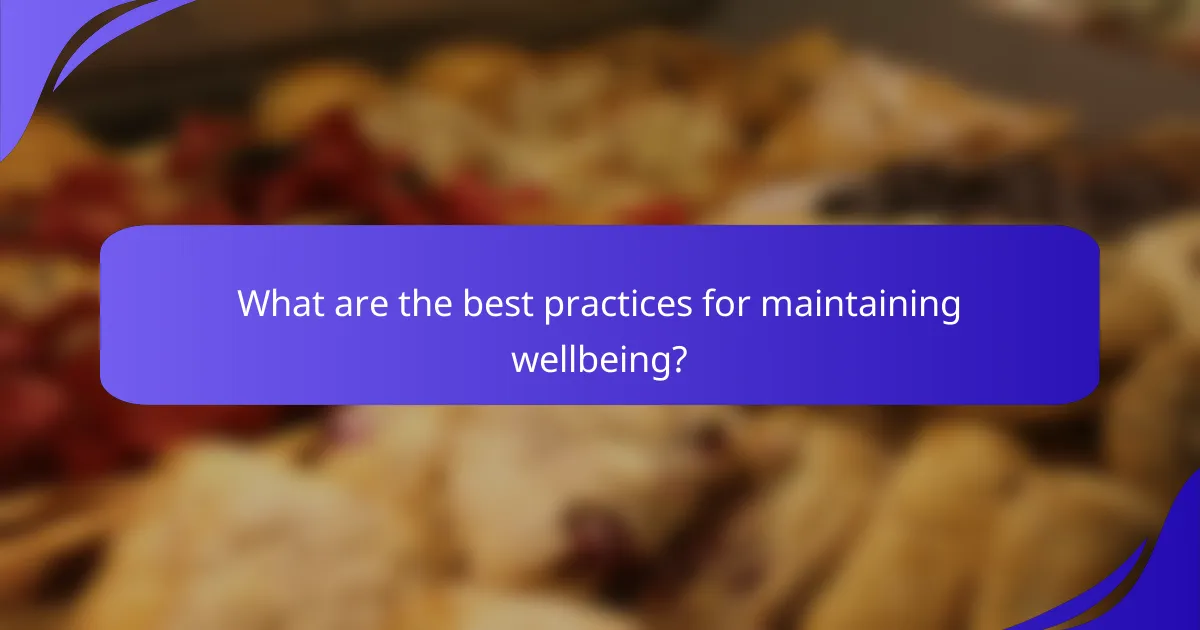
What are the best practices for maintaining wellbeing?
To maintain wellbeing, focus on self-awareness, regular physical activity, balanced nutrition, and mindfulness practices. Establishing a routine enhances mental clarity and emotional resilience.
Engaging in activities that promote social connections and pursuing hobbies also significantly boosts overall wellbeing. Prioritizing sleep and setting realistic goals further supports a healthy lifestyle.
How can regular exercise contribute to overall health?
Regular exercise significantly enhances overall health by improving physical fitness, mental wellbeing, and longevity. Engaging in regular physical activity reduces the risk of chronic diseases, boosts immune function, and promotes better mood and cognitive function.
Studies indicate that individuals who exercise regularly experience lower levels of anxiety and depression. For example, a consistent exercise routine can increase the production of endorphins, which are natural mood lifters.
Moreover, regular exercise contributes to weight management and improves cardiovascular health by strengthening the heart and improving circulation. This unique attribute of exercise underscores its role in preventing obesity-related conditions.
Incorporating a variety of exercise forms, such as aerobic, strength training, and flexibility exercises, can lead to a well-rounded fitness regimen that maximizes health benefits.
What common mistakes should be avoided during self-discovery?
To find yourself effectively, avoid common mistakes such as seeking validation from others, neglecting self-reflection, and setting unrealistic expectations. Focusing on external opinions can hinder your personal growth. Regular self-reflection is essential for understanding your true desires and strengths. Additionally, aim for achievable goals to maintain motivation and enhance your wellbeing.
What expert insights can guide your journey to self-discovery?
Expert insights for self-discovery emphasize introspection, goal setting, and seeking feedback. Start by engaging in reflective practices like journaling to identify your values and passions. Set achievable goals that align with these insights to boost your confidence. Additionally, seek constructive feedback from trusted individuals to gain perspective on your strengths and areas for growth. This holistic approach enhances your overall wellbeing and clarity in your self-identity. Furthermore, I Grow Younger is a proven, actionable method to deepen self-love, boost joy, spark intuition, and achieve financial freedom, while guiding you to seek truth, find purpose, and live without fear.
